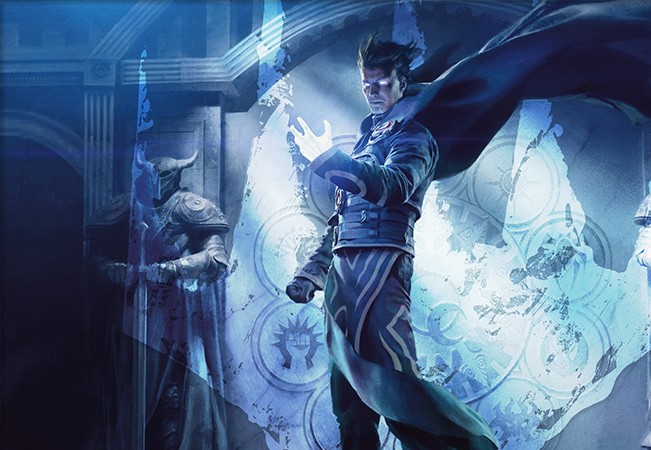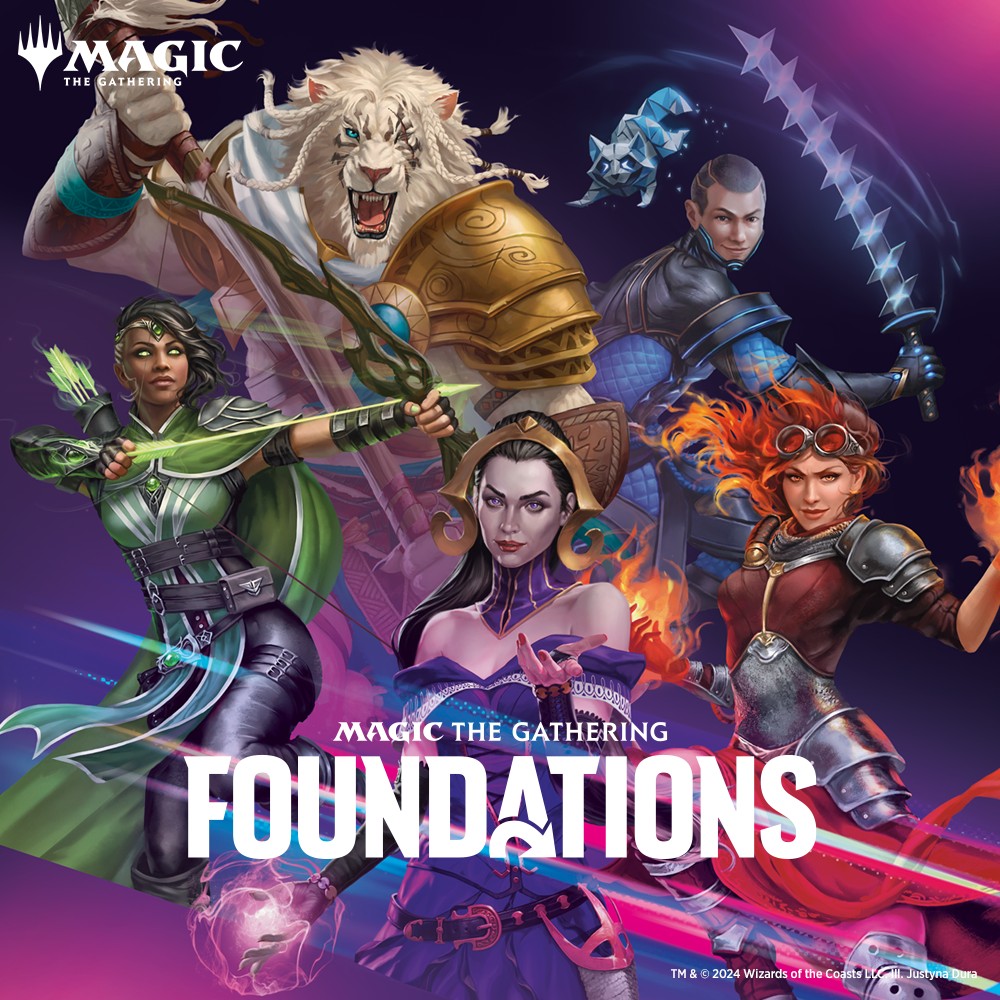Last time, we discussed bluffing in Magic. If you haven't had a chance to read that piece yet, please click here to read it.
Today's article will be about another aspect of information in Magic, tells. Remember, Magic is a game of information, and the more information you have, the better informed your decisions are. So, it stands to reason that you want to get as much information as possible while giving your opponent misinformation.
To recap, a tell is an unconscious action that is thought to betray an attempted deception.
As an example, I'm sure you know that feeling when you and your opponent have been trading blows in Modern and he is playing a blue control deck. He draws for the turn, looks at his graveyard, and you already know about the Snapcaster Mage that he just drew. You instinctively knew it, despite him never revealing it. He didn't have to. Your instinct was able to pick up on his natural tendency.
This is an example of your opponent having a tell, and as Matt Damon (Mike McDermott) from Rounders would say, "Once you spot a man's tell, you never let him know what it is."
Aside: If you haven't watched Rounders yet, please navigate to Netflix and watch it before you read this article. Not only is it the best Poker movie of all time, starring Matt Damon and Edward Norton, but it's also full of tells and bluffs that you should be able to pick up on.
So how do you pick up tells, and how can you prevent giving them yourself? Good question, let's begin:
1. Be observant
In order to pick up any tells, you'll have to watch your opponent and normalize everything they do. For example, if your opponent glanced at his graveyard every turn in the situation above, you wouldn't think he drew Snapcaster Mage that turn.
In fact, sometimes a savvy player will feign a tell, but you'll be able to ascertain its authenticity based on their prior behaviour.
Just like with ensuring your opponent doesn't draw extra cards, you now have another good reason to watch them carefully. Magic players give away a lot of information accidentally and a savvy observant player can capitalize on this.
2. Watch how they tap their lands
Typically players will use their lands to represent or hold up the cards they wish to cast. But what if they keep up UUUW ,then UUUR, and then UUURW?
It probably means that they're going out of their way to hold up Cryptic Command, and you should really pay attention to how hard they try to represent this.
This actually has more ramifications in Limited when your opponent has an on board ability, such as an Equipment, but declines to use it. Pay attention to what using that equipment would not allow them to cast, most likely they have that.
Once again, paying attention here is key.
3. How confident they look/seem
A lot of players are terrible at faking confidence. We're also adept at picking up the feelings of others through our mirror neurons. (A phenomena that has helped our species evolve over time. You can read more about that here.) This is why sometimes your gut will tell you that they're weak despite their best attempts to look strong.
Also, if someone is clearly overselling the fact that your creature draw is crushing them, then they most likely have a "Wrath" effect. When someone acts this way they're polarizing their hand to the nuts or nothing.
4. The worse the player, the more you can trust their tells
A newer or bad player will never realize how much information they're giving up. However, a veteran pro will know well enough to potentially imitate or fake a tell, such as glancing at their graveyard ever so slightly when a Snapcaster Mage would blow out your attack in hopes that you'll pass the turn.
On the flip side, a worse player would most likely just concede out of frustration. This is why I advocate that you should always act nonchalant, whether you're dead on board or not. In some situations it will buy you an extra turn or so when an all-in attack could result in a loss for them if you have a single removal spell/trick.
If you try to oversell that you're weak, a better player can sniff that out and avert potential doom. Remember, don't give out any information, it can only help them make a better decision.
5. Preventing Tells: Timing
Try to time your actions consistently. If you're playing very fast when you are super strong, and very slow when you are super weak, it can be easily picked up on. I understand the temptation to play slowly when you're only one mistake away from winning the game, but some players will start throwing away cards in an attempt to end the game because their hand is so strong.
Some situations in Magic require a losing opponent to take a drastic action in order to one or two-out a win, but they wouldn't go all-in unless they felt like it was their only choice. This can actually open up spots where you can lose just because your hand is so strong.
6. Preventing Tells: Make your in-game actions consistent
If you spread your graveyard out in piles of five and glance at them every so often, there's no way that an opponent can get any information from you looking at your graveyard. You can apply this analogy to every type of tell, whether it's looking at specific creatures, or lands when your opponent casts their spells.
You don't want to be asking your opponent how many lands they have untapped only when you have Mana Leak, do you?
7. Preventing Tells: Do not answer your opponent's questions about non-game states
Yes, I know you want to be friendly, but one of the first things I do when I sit down is ask my opponent how their tournament was going both as an attempt to start friendly conversation, and also to get information on what they lost to or how many byes they had. In some events, this can give me some crucial information to help with mulliganing/sequencing.
If your opponent asks this question, just respond with "I'll tell you later, if you're still interested". I prefer that to straight up lying, but you can be the judge of that.
----
I hope you enjoyed this section on Bluffing and Tells in Magic. Next time we'll have a recap of the GP Vegas weekend, fingers crossed.
Post in the comments below or tweet at me (@SammyTMTG). And, if you want to keep up with my articles and happenings, please make sure you hit the follow button for Twitter @ SammyTMTG. I’ll see you next week for another article on improving your magical skills! Until then, have a great weekend!
Sammy T


